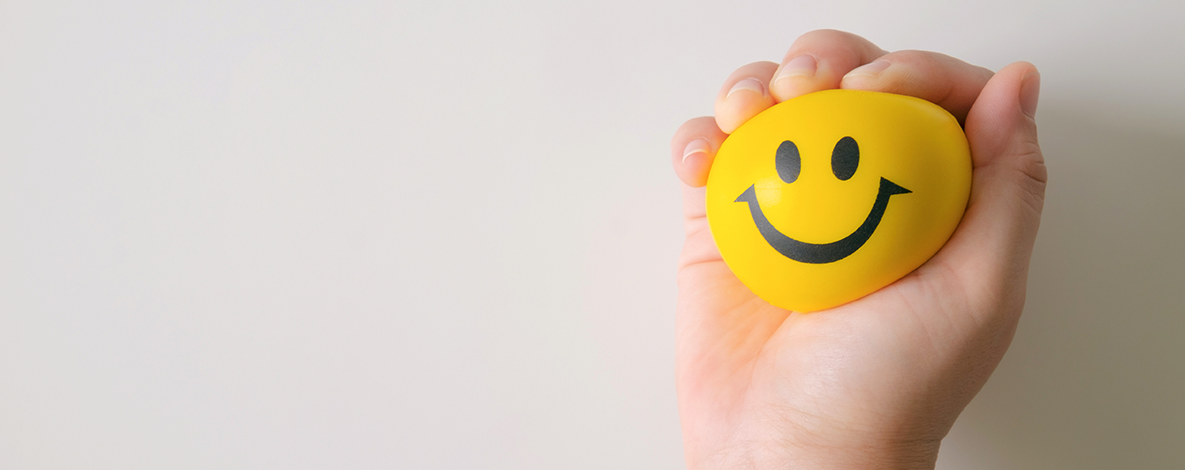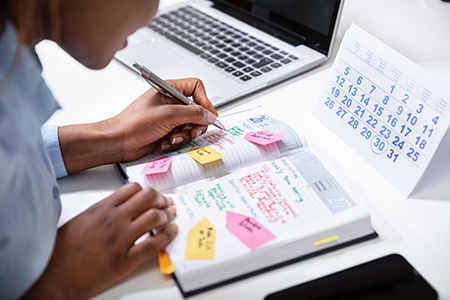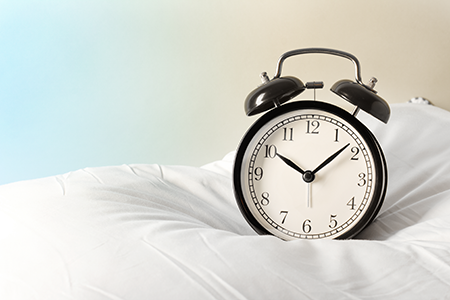7 Ways to Improve Stress Management & Mental Wellbeing

Stress and mental health are often connected. Apply some or all of these tips to your daily life to help manage stress and improve your mental health.

Keep a Positive Perspective
Keeping a balanced, positive perspective can help us through challenging times. Our brain responds more intensely to negatives than to positives. When we express thankfulness for what we have and when we re-frame negative thoughts, our overall perception of a situation can change. A positive perspective can help ease distress, hopelessness, or other not-so-positive emotions and feelings.

Positivity
Positivity further facilitates optimal management of stress and promotes mental well-being. What does it mean to be positive? Focus on your strengths, have good thoughts, and practice resilient self-talk. Health experts at the Mayo Clinic suggest focusing on positive thoughts and being hopeful. Consider starting your day by listing things you are thankful for that help you keep a hope-filled perspective.

A New Routine
Routine and consistency over that which we can control, helps us manage our physical, mental, and emotional health during trying times. Routine can be particularly helpful for children, so be intentional and schedule your family’s priorities accordingly.
When building your routine, start with sleep. By keeping your sleep and wake schedule consistent, you automatically get the day off to a good start! Healthy practices such as proper nutrition and exercise are two other areas that many of us have control over that we can build a routine around.
Whether you find yourself more or less busy, be deliberate and intentional with how you spend your time each day. Scheduling your time will also make the transition back to our old routines much easier.

Set Priorities
Do not become overwhelmed by creating a life-changing list of things to achieve while you are home. Set reasonable goals each day and outline steps you can take to reach those goals.
Give yourself credit for every step in the right direction, no matter how small and recognize that some days will be better than others.

Self-Care
Beyond your routine, self-care is crucial. Self-care can be anything from brushing your teeth regularly, to taking a short nap when feeling tired, or reaching out to a friend or family member if you feel sad or lonely. By practicing self-care and staying in tune with personal needs, your well-being routine begins to take shape: for more information on self-care, visit National Institute of Mental Health.
If you feel self-care is not enough, contact your primary physician and check out the following mental health well-being assessment from Mental Health America (MHA). In the case of a medical emergency call 911 or for mental health emergencies, call or text 988 to speak with a trained counselor at the 988 Suicide & Crisis Lifeline.

Time Management
As home and work collide for many, you may find yourself wearing multiple hats. Are you managing to be an employee, cook, caregiver, parent, teacher, spouse, friend, and neighbor? Chances are, you’re juggling a combination of these roles.
To maximize the results of your effort, having effective time management strategies in place will help you find the necessary balance. By prioritizing and scheduling your time based on you and your family’s priorities, you will feel more balanced in your day to day routine. Check out the resources below for more information on time management.

Make a Positive Impact
Find purpose in helping the people around you. For example, email, text, or call to check on your friends, family members, and neighbors — especially those who are elderly. If you know someone who cannot get out, ask if there is something needed, such as groceries or a prescription picked up, for instance.

Resources on Stress Management and Mental Health
American Institute on Stress
American Institute on Stress maintains an up to date library on all topics stress-related.
American Psychological Association
The American Psychological Association‘s resource library is full of information on a variety of topics.
Good Therapy
Time-Management Hacks to be More Efficient and Procrastinate Less, at GoodTherapy.org
Mental Health America
Mental Health America has an abundance of resources that can help you work through stress and change.
They also have a variety of self-assessment tests for you to take.
National Institute of Mental Health
National Institute of Mental Health has information on self-care, when to seek professional help and what to do in a crisis.

Download the Free Resource
Access a printer-friendly version of the resource to reference later.